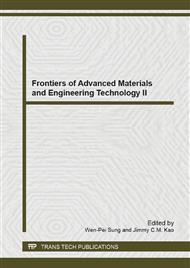p.1375
p.1379
p.1383
p.1386
p.1391
p.1395
p.1399
p.1403
p.1407
Speech Intelligibility Enhancement Using Distortion Control
Abstract:
In order to improve the intelligibility of the noisy speech, a novel speech enhancement algorithm using distortion control is proposed. The reason why current speech enhancement algorithm cannot improve speech intelligibility is that these algorithms aim to minimize the overall distortion of the enhanced speech. However, different speech distortions make different contributions to the speech intelligibility. The distortion in excess of 6.02dB has the most detrimental effects on speech intelligibility. In the process of noise reduction, the type of speech distortion can be determined by signal distortion ratio. The distortion in excess of 6.02dB can be properly controlled via tuning the gain function of the speech enhancement algorithm. The experiment results show that the proposed algorithm can improve the intelligibility of the noisy speech considerably.
Info:
Periodical:
Pages:
1391-1394
Citation:
Online since:
April 2014
Authors:
Price:
Сopyright:
© 2014 Trans Tech Publications Ltd. All Rights Reserved
Share:
Citation:


